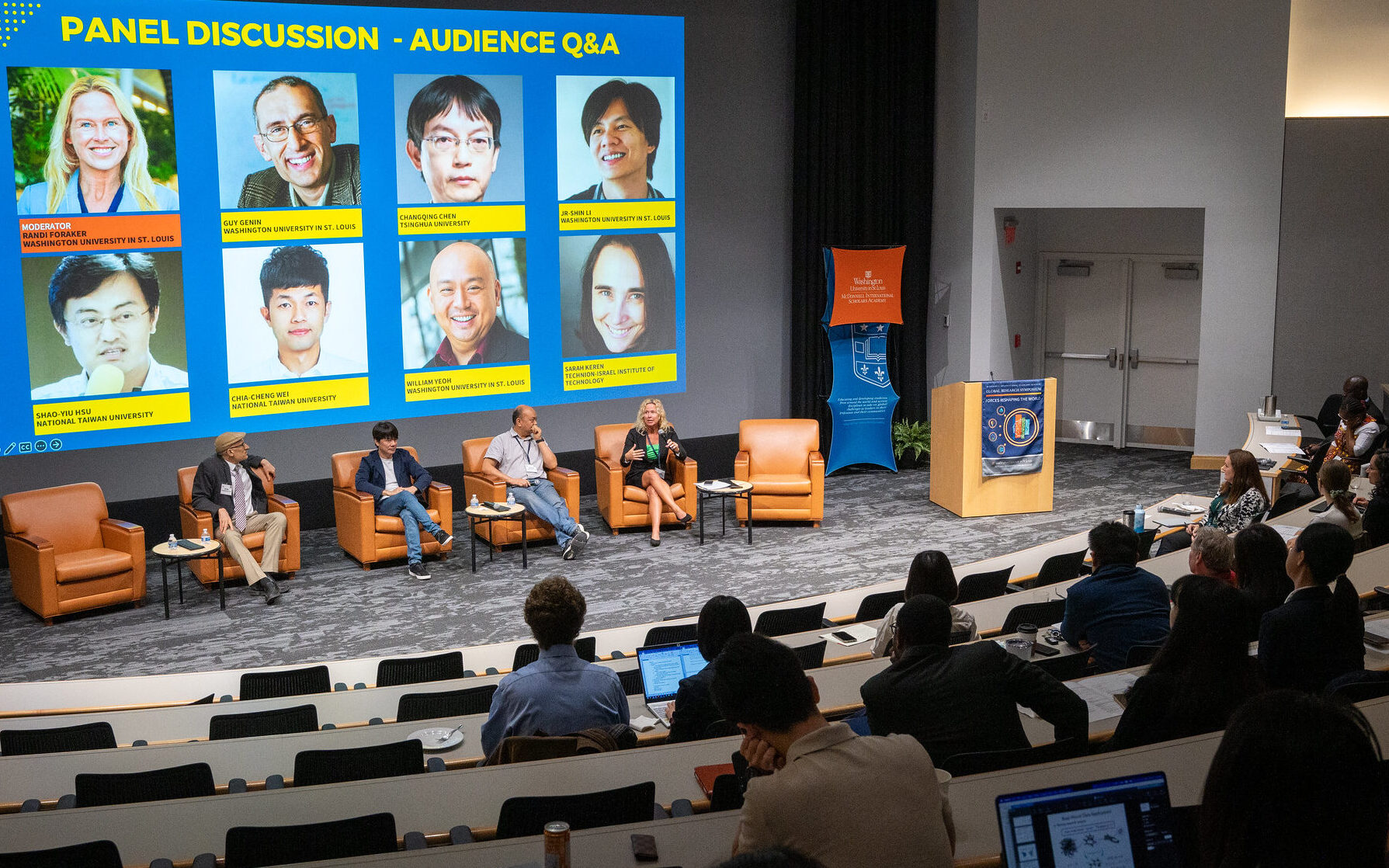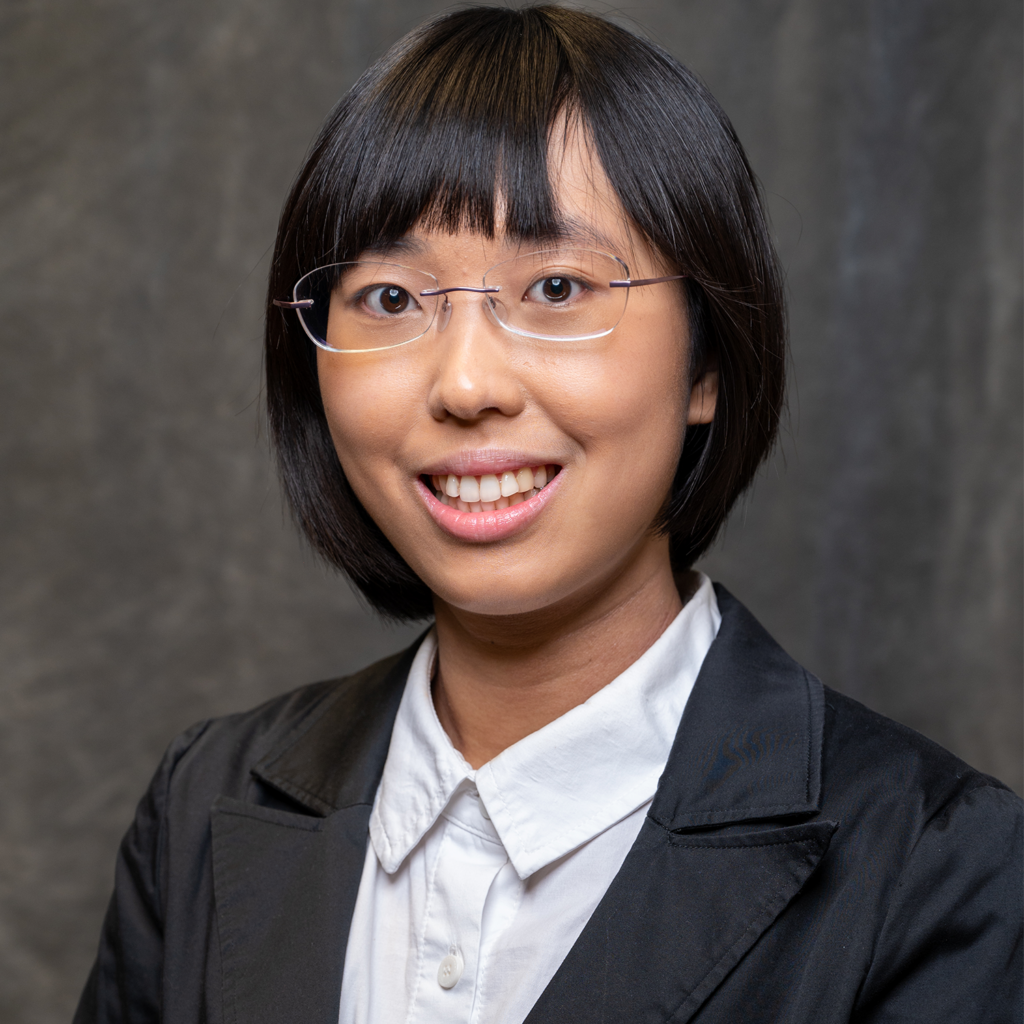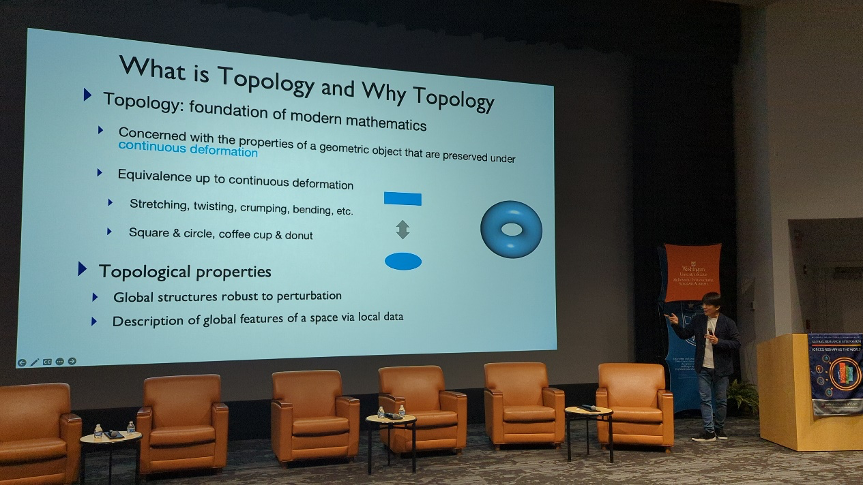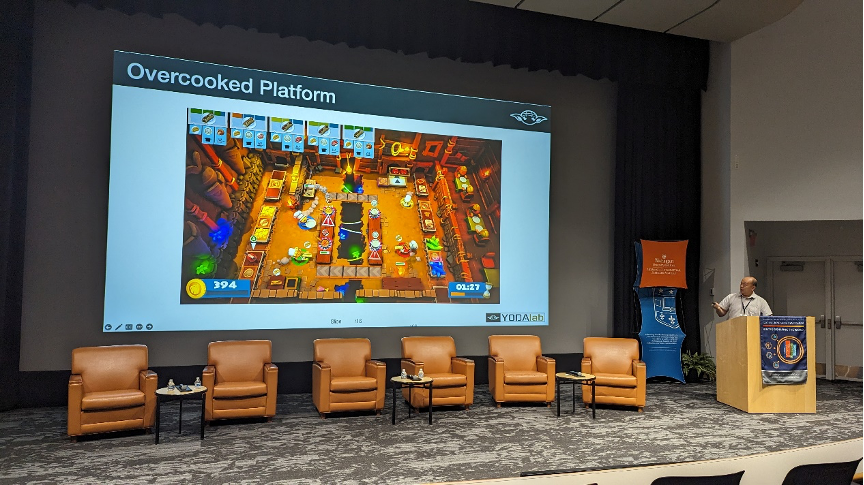October 7, 2023 | Hsin-Yi Cindy Chou, McDonnell Scholar

Can you imagine a computer made of only plastic pieces? Did you know a mug can actually be a donut? Have you ever tried to predict what would people do next by their actions?
In the final session of Global Research Symposium: Forces Reshaping The World held on Oct. 7, 2023, titled “Digital Transformation”, experts from Washington University in St. Louis, Tsinghua University, National Taiwan University, and Technion – Israel Institute of Technology shared their inspiring projects developing innovative smart materials, methods, and AI-assisted platforms and joined the following panel discussion with the moderator Randi Foraker, professor of medicine and director of the Center for Population Health Informatics, School of Medicine at Washington University in St. Louis.

McDonnell Scholar
Biomedical Engineering PhD student at McKelvey School of Engineering
The Technology-Driven World is Rapidly Changing
The world is evolving rapidly around us, especially computers. Even for the younger generations, the difference between the old, bulky computers, smartphones, tablets, or much lighter laptops we use every day is easily discernible. Changqing Chen, professor of mechanics at Tsinghua University, shared a history of materials with intelligence and explained how mechanical computing systems work, showcasing the collaborative work led by his team and Guy Genin, Harold and Kathleen Faught Professor of Mechanical Engineering, McKelvey School of Engineering at Washington University in St. Louis. Their innovative 3D-printed computers utilizing plastics as storage systems are ready to usher in a new era of digital transformation.

Jr-Shin Li, Newton R. and Sarah Louisa Glasgow Wilson Professor of Engineering, McKelvey School of Engineering at Washington University in St. Louis, presented a challenging goal of quantifying the global changes in climate systems through computational topology. Professor Li introduced the mathematical term “topology” with relatively simple animations of a 3D mug transforming into a donut – which was quite understandable and fitting given we were near lunchtime. Topology is defined as properties of a geometric object that are preserved under continuous deformation. I found the example of robots indicating the number of obstacles by identifying the number of holes was the easiest idea to grasp.
You can make great impact, but even greater impact when you work with people in the other fields.
Prof. Jr-Shin Li
This model based on topology has helped Chia-Cheng Wei, associate professor in the Department of Public Health at National Taiwan University, and Shao-Yiu Hsu, associate professor in the Department of Bioenvironmental Systems Engineering at National Taiwan University, in their research of the form transition between linear and fragmental mitochondria for drug screening and the evaporation process of water in porous materials for retaining carbons in the soil, respectively. The beauty of topology lies in finding the similarities between a broad range of subject sizes from nano to mega scale. Its impact in various research fields will continue to grow. “You can make great impact, but even greater impact when you work with people in the other fields,” said Prof. Li.
The Relationship Between Humans and AI

The last project focused on the collaboration between humans and artificial intelligence (AI). People have been worried about AI taking over human jobs; however, research from William Yeoh, associate professor of computer science & engineering, McKelvey School of Engineering at Washington University in St. Louis and Sarah Keren, assistant professor of computer science at Technion Israel Institute of Technology, focuses on how information from AI can help people make better decisions. The famous game “Overcooked” served as a platform for them to understand how an AI player can predict the next step of their human partner.
When two people speaking different languages work together and figure out what they can contribute, that is when the magic happens.
Prof. William Yeoh
Prof. Yeoh said, “When two people speaking different languages work together and figure out what they can contribute, that is when the magic happens.” The perspectives of Professors Li and Yeoh highlights the high value of collaboration that has advanced the technologies that are reshaping our world in every way.